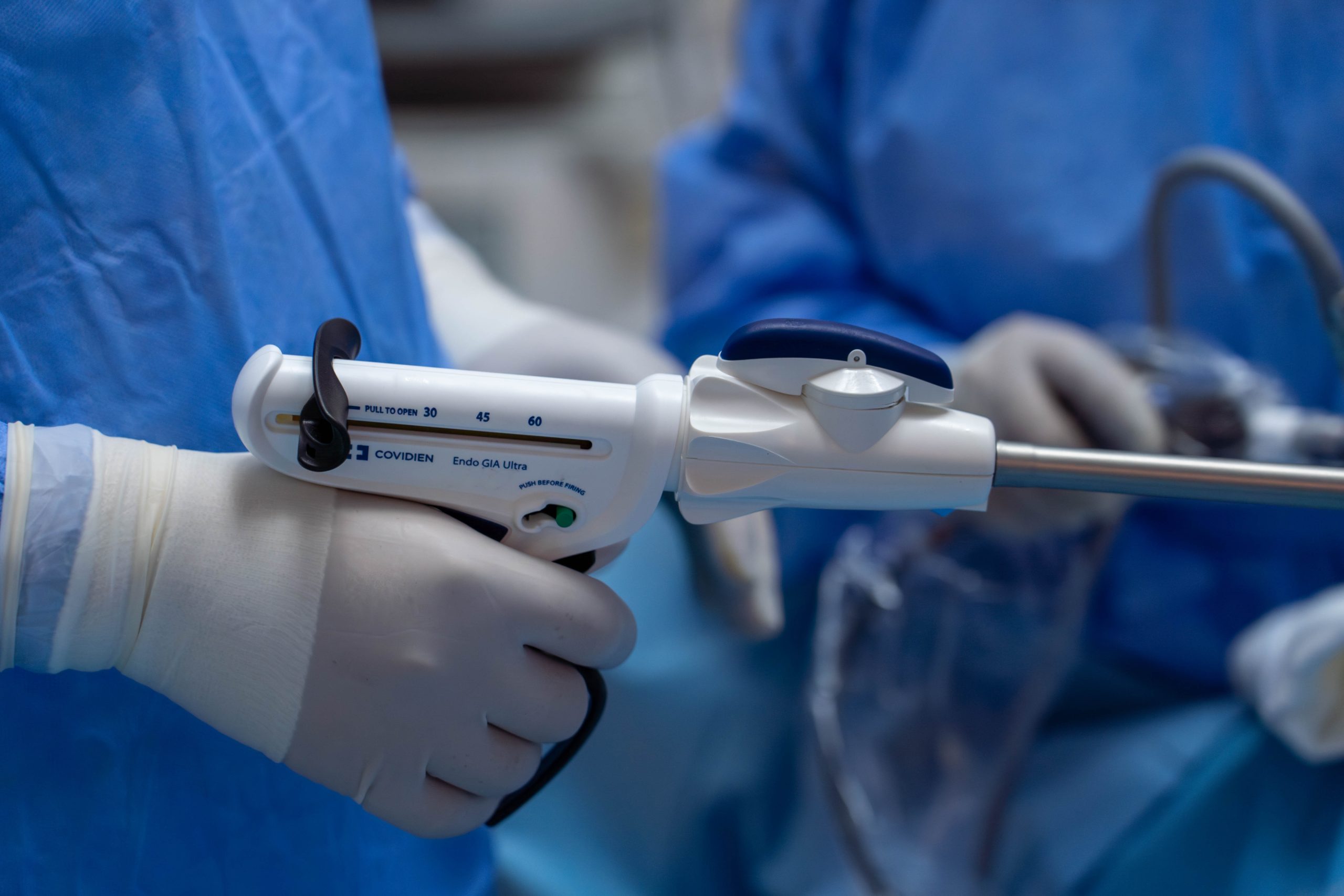Recent market research reveals that glucagon-like peptide-1 (GLP-1) injections are set to dominate the obesity treatment market but at the cost of the bariatric or weight loss surgery profession.
Research by J.P. Morgan predicts GLP-1 drug sales will surpass $100 billion by 2030, driven by a projected 35% rise in U.S. diabetes cases. It also predicts that 15 million diabetics will be under GLP-1 medication, bringing the total to 30 million or less than a tenth of the U.S. population. (1)
However, the rise in demand for GLP-1 has put bariatric surgeons in a precarious position. A study of more than 80,000 patients last October 2024 found a 132.6% increase in GLP-1 prescriptions and a 25.6% decrease in bariatric surgery patients. (2)
Thomas Tsai, the study’s lead author and an assistant professor at the Harvard T.H. Chan School of Public Health’s Department of Health Policy and Management, told STAT that he noticed more people cancelling their surgeries. This was more evident among people who had just begun taking the drug. (3)
Wonder Drug For Diabetics
GLP-1 is the brainchild of over a century of searching for a substance known as “incretine.” Interest in the substance ebbed and flowed until the drug’s discovery by endocrinologist Joel Habener and biochemist Svetlana Mojsov in 1986. (4)
GLP-1 is described as a cleavage product of proglucagon, a precursor or base hormone to several other hormones. Research shows that this receptor agonist (RA) regulates blood sugar levels, lowers body weight, and reduces the risk of heart and renal disease among people who have type-2 diabetes. (5)
GLP 1 and Ozempic statistics agree that the GLP-1 market will be worth between USD $71 billion and USD $150 billion by the next decade. Two pharmaceutical companies, Novo Nordisk and Eli Lilly, are expected to generate 45% of the drug’s sales in that period. Both report that they’ve invested billions in expanding their manufacturing capabilities.
As of this writing, the Food and Drugs Administration (FDA) has approved ten GLP-1 medication brands for weight loss and treating type-2 diabetes. These include:
- Ozempic (semaglutide injection) – type-2 diabetes
- Wegovy (semaglutide injection) – weight loss
- Rybelsus (semaglutide tablets) – type-2 diabetes
- Victoza (liraglutide) – type-2 diabetes
- Saxenda (liraglutide) – weight loss
- Mounjaro (tirzepatide) – type-2 diabetes
- Zepbound (tirzepatide) – weight loss
- Trulicity (dulaglutide) – type-2 diabetes
- Byetta (exenatide) – type-2 diabetes
- Bydureon (exenatide extended-release) – type-2 diabetes
Despite the drugs’ promising effects, their exorbitant price tags remain a major drawback. Data from the drug information website GoodRx puts the low-end cost at between USD $658 and USD $1,298 per carton of several pens. Both Medicare and Medicaid cover the cost of these drugs, albeit not entirely. (6)
Bariatric Surgery Still Effective

Amid the spike in GLP-1 use and demand, bariatric surgeons searchable on sites such as BestBariatricSurgeons.com believe bariatric or weight loss surgery remains the most effective way of dealing with obesity. Besides the high cost and ongoing supply limitations, they allude to the issue of the drug’s side effects.
Researchers from the University of British Columbia studied over 5,400 users of various GLP-1 and weight loss medications last year. They found that GLP-1 users are at a higher risk of digestive system-related medical conditions like pancreatitis, gastroparesis, and bowel obstruction. Both GLP-1 and weight loss medication users are at relatively equal risk of biliary disease. (7)
Meanwhile, a more recent study of over 6,000 diabetics and people with obesity aged 24 and older found that those who underwent bariatric surgery had a 62% lower risk of death than those who used GLP-1. Its authors explained that one reason is that the procedure lowers a person’s body mass index (BMI) more than GLP-1 alone. The study also reported a 45% lower risk among bariatric surgery patients compared to those who didn’t undergo the procedure at all. (8)
Experts also point out that either GLP-1 or bariatric surgery alone won’t be effective in achieving weight loss goals. Both must be accompanied by a gradual change to a healthier lifestyle, mainly a well-rounded diet and regular exercise.
Only Use FDA-Approved Drugs
In light of the drug’s growing popularity, the FDA recently issued a statement warning the public about unapproved GLP-1 drugs in the market. These products haven’t undergone the agency’s review; hence, their effectiveness and safety can’t be guaranteed.
It also reported that the agency received 607 reports of adverse effects from compounded semaglutide and tirzepatide as of November. While compounded drugs are viable for those whose medical needs can’t be met by FDA-approved ones, it explained that certain GLP-1 drugs shouldn’t be compounded due to the risk of overdosage.
The FDA also cautioned about counterfeit GLP-1 meds, which may contain little or none of the active ingredient or even the wrong one. It urges healthcare professionals and patients to report incidents involving unapproved drugs to its MedWatch Adverse Event Reporting program, either online or via fax. (9)
Experts say it’s unclear whether the increase in demand for this weight loss treatment is a fleeting moment or a sign of things to come. However, studies still favor tried-and-true bariatric surgery, if not in conjunction with GLP-1, for medical weight loss.
References:
- Dunleavy K. Novo, Lilly set to dominate $71B GLP-1 drug market by 2032: J.P. Morgan [Internet]. Fierce Pharma. 2023. Available from: https://www.fiercepharma.com/pharma/after-promising-heart-data-novo-nordisks-wegovy-jp-morgan-doubles-2032-market-projection-71b
- Lin K, Mehrotra A, Tsai TC. Metabolic Bariatric Surgery in the Era of GLP-1 Receptor Agonists for Obesity Management. JAMA Network Open [Internet]. 2024 Oct 25 [cited 2024 Oct 26];7(10):e2441380. Available from: https://jamanetwork.com/journals/jamanetworkopen/fullarticle/2825349
- Molteni M. In the era of GLP-1 drugs, demand for bariatric surgery plunges [Internet]. STAT. 2024. Available from: https://www.statnews.com/2024/10/25/bariatric-surgery-falls-as-glp-1-demand-rises-wegovy-zepbound/
- Friedman JM. The discovery and development of GLP-1 based drugs that have revolutionized the treatment of obesity. Proceedings of the National Academy of Sciences. 2024 Sep 19;121(39). Available from: https://www.pnas.org/doi/10.1073/pnas.2415550121
- Catanese L. GLP-1 diabetes and weight-loss drug side effects: [Internet]. Harvard Health. 2024. Available from: https://www.health.harvard.edu/staying-healthy/glp-1-diabetes-and-weight-loss-drug-side-effects-ozempic-face-and-more
- Popular GLP-1 Agonists List, Drug Prices and Medication Information [Internet]. GoodRx. Available from: https://www.goodrx.com/classes/glp-1-agonists
- Sodhi M, Rezaeianzadeh R, Kezouh A, Etminan M. Risk of Gastrointestinal Adverse Events Associated with Glucagon-Like Peptide-1 Receptor Agonists for Weight Loss. JAMA [Internet]. 2023 Oct 5;330(18). Available from: https://jamanetwork.com/journals/jama/fullarticle/2810542
- Dicker D, Yael Wolff Sagy, Noga Ramot, Battat E, Greenland P, Ronen Arbel, et al. Bariatric Metabolic Surgery vs Glucagon-Like Peptide-1 Receptor Agonists and Mortality. JAMA Network Open [Internet]. 2024 Jun 7 [cited 2024 Sep 3];7(6):e2415392–2. Available from: https://pubmed.ncbi.nlm.nih.gov/38848064/
- FDA. FDA’s Concerns with Unapproved GLP-1 Drugs Used for Weight Loss [Internet]. U.S. Food and Drug Administration. 2024. Available from: https://www.fda.gov/drugs/postmarket-drug-safety-information-patients-and-providers/fdas-concerns-unapproved-glp-1-drugs-used-weight-loss
Members of the Newport Beach Independent Newspaper were not involved in the creation of this content.




